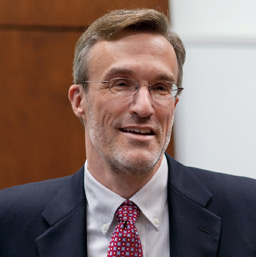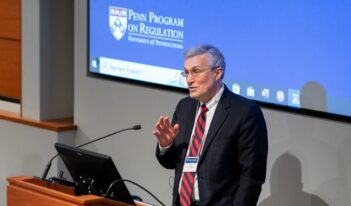
Debate over regulation’s effects on employment would benefit from better policy analysis.
This past Friday’s jobs report contained mixed news. On the positive side, the Department of Labor reported that employment grew in February by 175,000 jobs, which was more than expected. But the unemployment rate still remains high and actually increased slightly to 6.7 percent last month. More than 10 million individuals who want a job cannot find one, and the number looking for work for longer than six months increased in February to 3.8 million.
The slow employment recovery following the Great Recession underscores the continuing priority the nation’s political leaders give to job growth. In searching for a cure for high unemployment, politicians from both political parties have turned their attention in recent years to regulation.
Taking a page from President Reagan’s playbook during his 1980 presidential campaign, Republicans today point to regulation as a key explanation for the economic malaise, repeatedly referring to regulations as “job-killers.” Democrats have also joined the debate, asserting that inadequate regulation caused the economic crisis in the first place and that more stringent regulations can sometimes create new jobs, such as when strict environmental rules create so-called “green jobs.”
Remarkably, despite strong partisan claims linking regulation either to job gains or losses, existing economic research offers little reason to believe that regulation has any substantial overall effect on net employment.
From a theoretical standpoint, regulations might reduce employment by increasing product prices. But regulations can also be expected to increase labor demand as well, particularly in producing the technologies or other compliance strategies needed to implement new regulations. These opposing forces have the potential to cancel each other out, and empirical research to date suggests this is what happens.
Most of the evidence demonstrates that regulation plays a relatively small role in determining the aggregate number of jobs. Studies either find no relationship at all or they indicate that regulation has at most modest positive or negative effects on overall employment.
Yet as we explain in the opening chapter of our recent book, Does Regulation Kill Jobs?, politicians still intensely debate regulation’s impact on jobs. Of course, it should not surprise anyone to learn that political rhetoric does not track the latest social science research. We know that whatever the evidence may say about policy issues, symbolic gestures play an important role in politics. Politicians face intense pressure to do something in the face of crisis – regardless of whether their actions are likely to remedy the underlying problem.
Still, the apparent disconnect between empirical evidence and political rhetoric over regulation’s impact on jobs may turn out to stem less from any abandonment of the facts but more from a difference in objectives. Economists tally job gains and losses across the entire country to find that regulation has a relatively benign net impact on employment, but politicians care more about what happens in their states and local communities.
“All politics is local,” the late House Speaker Tip O’Neill famously quipped. Although economists tend to combine job gains and losses across the country when doing their research, politicians care where those underlying job gains and losses occur. The closing of an individual factory in a congressional district in Ohio matters to that district’s representative in Congress even if another factory in Tennessee expands due to new regulatory requirements.
Furthermore, while economists reasonably weight all jobs lost or gained equally in their studies, politicians implicitly treat job losses as weightier than corresponding job gains. After all, those who stand to gain new jobs from a regulation may not even be known at the time the government adopts the regulation. In contrast, workers (and voters) who stand to see their businesses close down will be more likely to be known – and can be expected to be more vocal in the political process.
Some research does document the existence of localized employment effects of the kind that concern politicians. Although in the aggregate regulation does little to kill jobs on net, regulation can and does induce job shifting, as some regions of the country benefit from regulatory requirements while others are simultaneously hurt by those same rules. These distributional impacts matter – and, of course, in a democracy they motivate politicians.
For this reason, we hope that our new book – the first ever to focus squarely on regulation’s employment impacts – will both inform and encourage efforts to improve policymakers’ decisions over both regulatory and economic policy. As long as some regulations cause job shifts or changes in what jobs pay, politicians will continue to debate the connection between regulation and employment, especially as the lingering effects of the Great Recession persist.
The contributors to Does Regulation Kill Jobs?, which we co-edited with Adam Finkel, take seriously the need to understand better how regulations affect the distribution of jobs across the economy. The book presents additional empirical evidence that reinforces the decidedly nuanced picture of the connection between regulation and employment suggested by past research. It tackles key analytical challenges that must be confronted if government regulators are to assess better how new regulations might affect employment. The book also provides tangible recommendations for reforming the regulatory process in order to take job impacts more seriously.
Ongoing political debate over regulation can only benefit from better research and analysis.
Rather than seeing empirical research at odds with politicians’ concerns, we think it better for regulatory analysts and scholars to equip themselves to respond to what politicians and the public care about in times of economic upheaval: getting laid-off workers back on the job.
This essay is part of The Regulatory Review’s six-part series, Does Regulation Kill Jobs?





